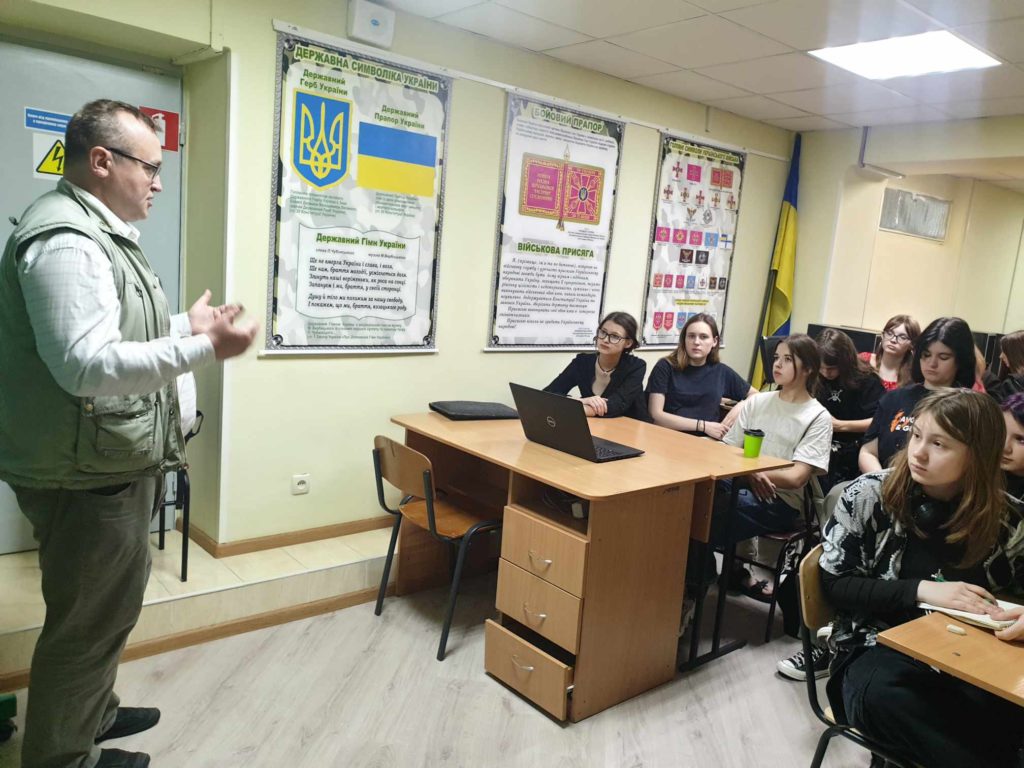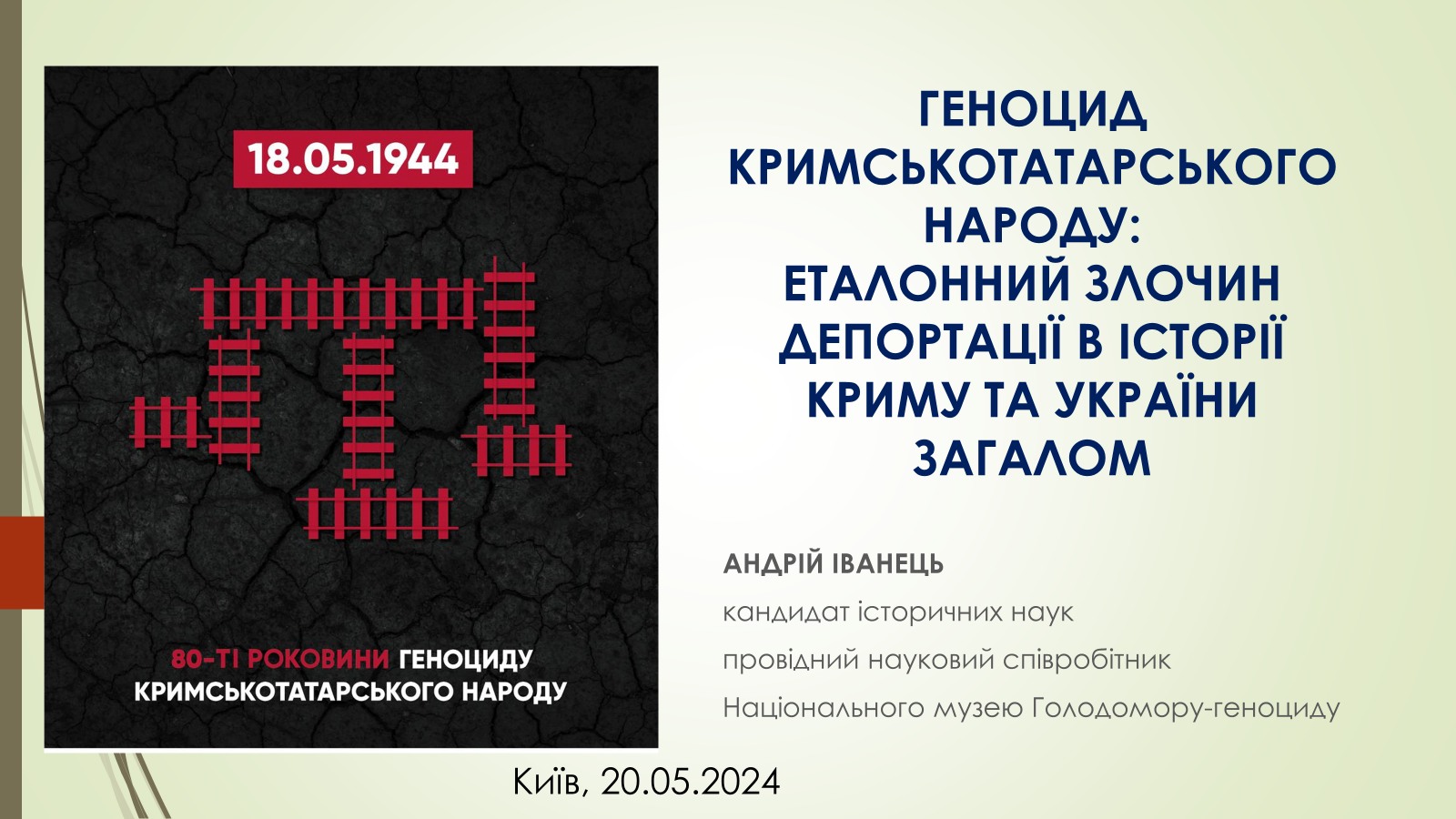The scholar of the museum told the students about the genocide of the Crimean Tatars
Andrii Ivanets, a leading researcher of the National Museum of the Holodomor-Genocide, took part in the event “Genocide of the Crimean Tatar people: the reference crime of deportation in the history of Crimea and Ukraine in general”, which took place at the Applied College “Universum” of Borys Grinchenko University of Kyiv. The event was dedicated to the 80th anniversary of the Crimean Tatar genocide.

As Andrii Ivanets recalled, for three days – from May 18 to 20, 1944 – the communist regime, with its centre in Moscow forcibly deported thousands of Crimean Tatars from the Motherland, mainly women, children and the elderly. Many of them died on the way to the places of special settlements, thousands – in the first years of their stay abroad. At that time, the communist regime did everything to erase any traces of the presence of indigenous people in Crimea – renamed settlements and destroyed architectural and cultural monuments. The ethnonym “Crimean Tatars” itself was tried to be erased from people’s memory. For example, during the all-Union censuses of 1959, 1970 and 1979 in the USSR, such nationality was not recorded, at all. At the end of the 1980s, the Crimean Tatars began to return to the Motherland. However, after the occupation of the peninsula by Russia, oppression of the indigenous people began again.
“College students – future lawyers, publishers and journalists turned out to be an interested and thoughtful audience. It’s nice when the audience engages in dialogue, and it is clear that many people were touched by the complex topic of Moscow’s heinous crime and the tragedy of the Crimean Tatar people,” Andrii Ivanets shared his impressions of communicating with young people.
